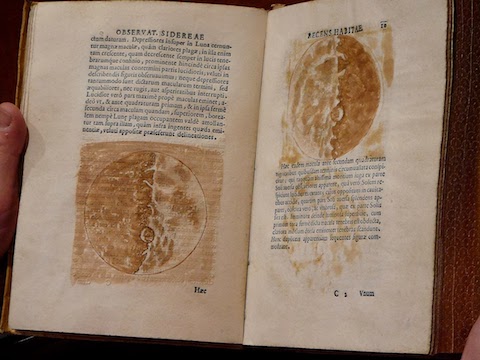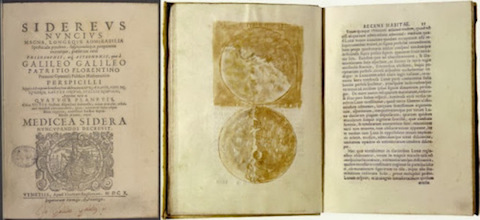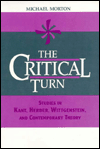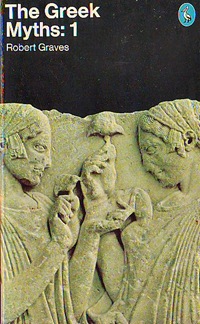Actually the lecture was called “The Extroverted Reader” and looked at the ways in which ebook readers are changing the ways in which we consume culture.
Beginning with a bit of history: The technology of writing began about 5000 years ago (Unfortunately in my slides I’m off by a millennium) by the Sumerians. By 2000 BC the Phoenicians had a form of writing – but it did not contain many of the elements we rely upon today:
fndtlvsnvrydctngvrytmsmbdytrnsnthstgntththrrmndrdbk
For example, 1000 years late the Greeks had added vowels
ifindtelevisionveryeducatingeverytimesomebodyturnsonthesetigointotheotherroomandreadabook
and the plays of Aristophanes (446 BC – ca. 386 BC) had punctuation
ifindtelevisionveryeducating.everytimesomebodyturnsontheset,igointotheotherroomandreadabook.
Mixing lower and upper case appeared 700 AD
Ifindtelevisionveryeducating.Everytimesomebodyturnsontheset,Igointotheotherroomandreadabook.
and the humble spaces between words seems to have been developed in Ireland in 900 AD
I find television very educating. Every time somebody turns on the set, I go into the other room and read a book.
But since then not much has happened. Sure we have changes in materials, production and business models. But the printing press was not an innovation in text – it was an amazing innovation in lowering production costs. So basically for the next millennium not much happened.
It was not until we began to go digital that we realized that we had the potential to fundamentally change the way in which we read. But things did not come overnight and it was not until the 1970s that we cracked electronic paper. This development was fundamental to the development of the ebook reader. The next challenge is to find a point at which to start looking at the developments in the field. Here is my timeline: 1993 Apple Newton, 1999 Franklin EB-500 Rocket eBook, 2002 TabletPC, 2004 Sony Libré, 2006 eReader PRS-500, 2007 iPhone, 2007 Kindle, 2009 Nook, 2010 iPad, 2011 Kindle fire.
 This was followed by a brief section on the control of media – the ways in which books could be controlled in the past in relation to how they can be controlled in the present. What you can and cannot read depends on those who control the technology of reading. Prior to ebooks this control was a question of distribution. Here we can see examples of the requirement of censors to permit the printing of books through the system of imprimatur or the attempts to create lists of forbidden books such as the Index Librorum Prohibitorum of the Catholic Church. These analogue controls have their strengths and weaknesses but they are naturally imperfect controls.
This was followed by a brief section on the control of media – the ways in which books could be controlled in the past in relation to how they can be controlled in the present. What you can and cannot read depends on those who control the technology of reading. Prior to ebooks this control was a question of distribution. Here we can see examples of the requirement of censors to permit the printing of books through the system of imprimatur or the attempts to create lists of forbidden books such as the Index Librorum Prohibitorum of the Catholic Church. These analogue controls have their strengths and weaknesses but they are naturally imperfect controls.
No matter how effective the controls were, they were no match to the control demonstrated by Amazon when it remotely deleted some digital editions of the George Orwell’s 1984 from the Kindle devices of readers who had bought them (NYT, June 2009). This act shined a clear light on one of the fundamental questions of ebooks – what is it we have actually bought when we buy an ebook? What do we own or have a right to use? Is the content of our reader ours?
This area is fascinating but what my talk was going to focus on was the issue of connectivity in relation to the reader so I moved along to the growth of connectivity in reading. Reading is always a social activity, in its most basic form the reader is connecting with the writer. We are also connected, in some form, to others who have read the same material as us. By reading similar works we create a common culture and understanding. Our common experiences enable us to have a common starting point in many discussions. This is true of all cultural expressions. Today saying things like double-dip or tie-fighter evoke common ideas and shared experiences but what would these words have meant to someone in 1970?
Today sharing is all the vogue and the technology of choice is social media. There are naturally critics to our new behaviors. Some critics see the end of human culture (Keen 2007) to the rewiring of the physical brain. For the latter I like to use Professor Greenfield who has been quoted as saying:
“My fear is that these technologies are infantilising the brain into the state of small children who are attracted by buzzing noises and bright lights, who have a small attention span and who live for the moment.”
There is a general criticism that we are using our devices to ensure that we have a constant stream stimuli and the fear is that this will prevent us from having “real” experiences. My take on this is that we are losing certain aspects and gaining others… for example I have written about the negative side of the loss of real boredom in our lives.
By connecting social media and reading we are attempting to ensure that the reader is not unconnected from the rest of the world. One part of this is the highlighting function in readers. First the highlighter is a mimic of analogue technology. We need to be able to highlight sections of text in order to find them again. But this is quickly used in new and exciting ways. First we can share our markings so that while reading you can be informed that 3 readers have highlighted this section. This effects our reading, we want to be accepted by others and not to stand out – so we look more carefully at these sections. Secondly, if we highlight a section this information is passed along but it may not be enough- we are asked whether we would like to share what we are reading. Why? Its all part of the development of performance lifestyle. Of course we want to share our deepest browsing, we need to show that we are extraordinary in some fashion.
 All this data is gathered and analyzed. As is the data of which books you buy, when you buy them, when you start reading them, when you stop reading them, where in the book you pause or start and if you actually finish the book. Sure, you may actually have thick books in your bookshelf but in the future your bookseller will know how long it took you to read them – if you ever did!
All this data is gathered and analyzed. As is the data of which books you buy, when you buy them, when you start reading them, when you stop reading them, where in the book you pause or start and if you actually finish the book. Sure, you may actually have thick books in your bookshelf but in the future your bookseller will know how long it took you to read them – if you ever did!
This is the interesting thing. While we are buying our books we are also taking part in a much larger process where we are providing information about our deepest and most solitary habits. Someone is really reading over your shoulder but they don’t want you content – they want your habits.
The next section looked at changes in the marketplace as the ways in which we read will naturally change the ways in which we create and sell books. Amazon already knows what you browse and what you do, or do not buy, they allow us to write reviews and to use functions such as Facebook’s Like button. Not to mention the ways in which they are using interesting varying pricing strategies to get use to impulse buy. Buying is easier and does not require physical activity or waiting for delivery. This increases the content we have available to us.
Our content is swelled even further buy alternative book markets such as self publishing projects or Project Gutenberg which has 36 000 books available to us. Stop and think about that number! That’s a huge amount of books. Add to this the pirated books which can be downloaded illegally. These alternatives provide any reader with an endless supply of books. Endless if they are intended to be read as well as downloaded.
So in closing I wanted to address the point of the lecture: What will the endless library do to our individual reading patterns, to our collective cultures, to our language, to our libraries?
– Access to endless amounts of books will change the ways in which we read. We will demand more for less from our authors. Readers will generally have less tolerance for the slow read and will want more bangs for their bucks. Writers wanting to achieve large scale fame will have to adapt to this. Publishers will demand they do. Publishers will also know (based from reader data) where and when readers stopped reading and will attempt to “fix” this.
– Our culture will no longer be defined by a common canon of literature but we will become more splintered into interests. Naturally we will still be dominated by the bestsellers but below that we will all read our own interests in a way that we have not seen in books (but we have seen this in magazines and music).
– Many non-English publishers have been attempting to retain control over their markets by excluding or limiting the ebook from their languages. But this is not a long-term solution as self-publishing will force them to change. If not there is the possibility that the smaller languages will suffer (maybe disappear?), especially in the countries where English skills are good.
– Our libraries are often seen by outsiders as bastions of conservatism. This is very much the outsiders view. Librarians are the first to adopt and change. They do not see themselves as repositories for physical books but as place of information exchange. This will continue to develop but it is important that the image of the library as the silent, dusty pile of books and the librarian as the old spinster must change in order for librarians to succeeded in their metamorphosis.
One thing is certain. Culture is inevitable even if copyright is not. Technology will not kill our culture even if the business models which we are used to seeing today may not be around tomorrow. The reader will remain even if trees are no longer killed to feed her habits.
The slides for my presentation are online here.
























